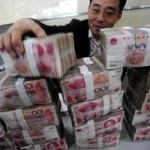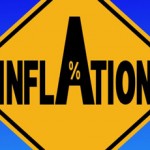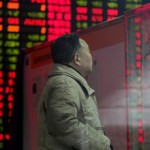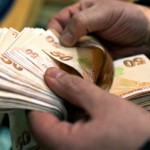China Inflation Drops to Five-Year Low in January
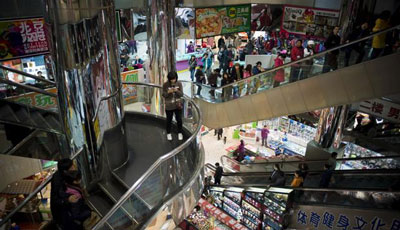
China’s Consumer-Price Index Rose 0.8% in January From a Year Earlier
Inflation in China fell to a five-year low in January, spurring calls from economists for more stimulus measures to counter deflationary pressure in the world’s second-largest economy.
China’s consumer-price index rose 0.8% on year in January, down from an already low 1.5% rise on year in December, according to data from the National Bureau of Statistics released on Tuesday. The pace fell slightly below market expectations of a 0.9% rise and marked the lowest rise since November 2009, when the CPI was up 0.6%. Producer prices, which have been dropping for nearly three years, declined 4.3% in January on year, the sharpest fall since late 2009.
Declining commodity prices, unusually warm weather and continued weak demand fueled the consumer-price drop, according to economists.
Lower prices help an economy if consumers and companies use the savings to buy and invest. But protracted price declines may encourage them to delay spending in the belief that waiting will result in still-lower costs in the near future, dragging down growth. Tuesday’s weak price data from China dovetails with others indications of low demand from consumers and companies across Asia, limp economic demand in Europe and Japan and sagging oil prices, which have added to deflationary pressure.
The anemic price rates are the latest in a number of data that depict a Chinese economy facing slowing growth, despite a rate cut and other measures by the central bank to recharge growth. January imports and exports fell, contrary to expectations, while a key measure of factory output sank to a 28-month low.
China’s economy grew by 7.4% on year in 2014, its slowest pace in nearly a quarter century.
“Basically, domestic demand is still pretty weak,” said HSBC economist Ma Xiaoping. “We still don’t see any positive effects of the stimulus measures put through at the end of last year. Obviously, policy makers need to do more.”
Softer prices for raw materials on world markets and a weak housing market, which dampens demand for steel, cement and other goods, act as a drag on inflation, economists said.
Economists say Chinese authorities are aware that without further action, the real cost of borrowing when inflation is taken into account will remain high, blunting expansion in the real economy.
Ms. Ma added that she expects the People’s Bank of China to implement two interest rate cuts and two cuts in the amount of reserves that financial institutions must keep with the central bank this year.
Crédit Agricole economist Dariusz Kowalczyk said he thought an interest-rate cut is likely in March. “There are very strong arguments from all directions of a need for monetary easing,” he added.
Falling prices can also make debt more difficult to repay, a big issue in China where local companies are saddled with huge liabilities assumed after the 2008 global economic crisis. Fitch, a global ratings agency, estimates that the stock of debt—mostly corporate—in China’s economy had risen to 242% of gross domestic product by the end of 2014, up from 217% a year earlier.
Economists said January’s rock-bottom inflation figure could be attributed partly to the Lunar New Year holiday, which in 2014 fell in January but this year lands in February, muddying year-ago comparisons. Business and industrial activity tends to slow in the weeks before the holiday as hundreds of millions of people return to their hometowns, smaller companies let migrant workers off, and the focus shifts to consumption, leading to higher food prices.
Warmer-than-usual weather also contributed to a slower seasonal rise of vegetable prices last month, they said, given that China saw its warmest January this year since 1961.
Premise Data Corp., an online site that tracks global food prices, recorded declining prices in beverages, dairy, fish, grains, meat and oils sold in China during the past 30 days with increases in fruit and vegetables.
Shoppers out buying for the Lunar New Year holiday said they are seeing fewer price increases leading up to China’s biggest holiday. “With the new year coming, many supermarkets are giving big discounts, so prices seem OK to me,” said Ms. Yi, a 42-year old self-employed woman wearing a long purple down jacket who declined to give her first name. “Green vegetable prices go up a lot in winter, but meat prices haven’t increased so much this year.”
Economists said they expect food prices to decline this year once the holidays are over. Pork prices are likely to continue falling through 2015 given lower forecast feed prices, Capital Economics projected.
Falling oil prices are trickling down to consumers—the government lowered retail fuel prices twice in January—although at a slower pace than in some other countries given China’s price-control system.
Excess capacity in the property sector should keep housing inflation at bay, economists said, with little recovery in prices expected despite recent monetary easing.
Some said they expect the worst is over for deflationary pressure in China. “Inflation fell to a five-year low in January, but we don’t think this should spark concerns over impending deflation,” Capital Economics said in a research note. “Indeed, January is likely to be the low point for inflation this year,” it added.
Source: wsj – China Inflation Drops to Five-Year Low in January









